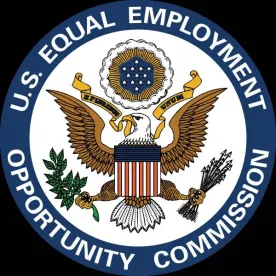The U.S. Equal Employment Opportunity Commission (EEOC) recently issued its revamped proposed rules governing employer-sponsored wellness programs. These proposed rules have been a long time coming, with the EEOC’s prior rules on the topic having been invalidated by a court and then partially revoked. In this current proposal, the EEOC has issued two separate sets of regulations: one under the Americans with Disabilities Act (ADA) and one under the Genetic Information Nondiscrimination Act of 2008 (GINA).
Americans with Disabilities Act
Background
The ADA prohibits an employer from making a “disability-related inquiry” or requiring an employee to undergo a “medical examination” unless it is job-related and consistent with business necessity, or done in connection with a “bona fide benefit plan.” A disability-related inquiry is any question that is “likely to elicit information about a disability,” while a medical examination is a “procedure[] or test[] that seek[s] information about an individual’s physical or mental impairments or health.”
Employer-sponsored wellness programs often involve disability-related inquiries or medical examinations, and, as such, participation by an employee must be voluntary in order for the programs to comply with the ADA. When an employer offers financial and/or other incentives in connection with a wellness program, the question arises whether the program is truly voluntary or whether the incentive is significant enough to make it coercive.
In 2016, the EEOC issued final regulations outlining the rules a wellness program must follow in order to be deemed “voluntary” under the ADA. Generally, those rules required a wellness program that made a disability-related inquiry or required a medical examination to meet several criteria, most notably mandating that the maximum incentive that could be offered under the program not exceed 30 percent of the total cost of employee-only coverage.
Shortly after the EEOC finalized the rules, the agency was sued on grounds that the 30 percent incentive limit was too high. With such a large incentive, the suit argued, employees would feel coerced to submit to the disability-related inquiry and/or medical examination, and therefore the program was not “voluntary” within the meaning of the ADA. The court agreed with the allegations, leading the EEOC to vacate the incentive provisions of its wellness program rules. These new proposed rules are in response to the case.
2021 ADA Proposed Rules
The new ADA proposed rules piggyback, in part, on the wellness program rules contained in the regulations under the Health Insurance Portability and Accountability Act of 1996 (HIPAA). Under HIPAA’s rules, wellness programs are divided into two categories: (i) participatory programs (which either offer no reward or reward participation only, and do not condition any reward on the satisfaction of a standard related to an employee’s health factor) and (ii) “health-contingent” programs (which condition a reward on satisfaction of a standard related to an employee’s health factor, such as cholesterol level, blood glucose level, or tobacco use).
Participatory programs are subject to relatively few rules under HIPAA. According to the HIPAA regulations, the only requirement is that the rewards “be made available to all similarly situated individuals, regardless of health status.
Health-contingent programs, on the other hand, are subject to an array of rules, including a cap on the amount of the reward. The cap is 30 percent of the total cost of coverage (or 50 percent for wellness programs offering a reward for tobacco cessation). If dependents can qualify for the reward, then the program may use the coverage tier in which the individual is enrolled (e.g., “employee plus spouse” or “family”) when calculating the percentages. If dependents cannot earn the reward, then the program must use the employee-only cost of coverage when calculating the maximum permissible reward.
Under the ADA proposed rules, different standards apply to wellness programs that are part of a group health plan and those that are not. The ADA proposed rules list four factors to consider when determining whether the wellness program is part of a group health plan: (1) Is the wellness program offered only to employees who are enrolled in the employer’s group health plan, or is it also offered to employees who do not choose to enroll in group health plan coverage? (2) Is the reward tied to premiums or cost-sharing in the group health plan (e.g., a premium discount)? (3) Is the wellness program offered by a vendor that has contracted with the group health plan? (4) Is the wellness program a term of coverage under the group health plan?
If the wellness program is considered to be “part of” the group health plan, then it is subject only to the HIPAA rules on health-contingent programs and will be deemed to satisfy the ADA’s rules if it satisfies HIPAA’s rules that apply to health-contingent programs. Under the ADA, disability-related inquiries and medical examinations may be made as part of a bona fide benefit plan. Under the ADA proposed rules, wellness programs that are part of group health plans under HIPAA (either because they are tightly connected to the group health plan, or because they are themselves group health plans) will be considered “bona fide benefit plans,” so long as the programs use the data obtained through the wellness programs to help employees improve their health.
The ADA proposed rules further provide that a wellness program that is not part of a group health plan may only offer a reward that is de minimis—or, of minimal, value. This is a big departure from the previous 30 percent limit. The ADA proposed rules contain a few examples of items that would and would not meet the definition of de minimis, and the EEOC has specifically asked whether additional information or examples would be helpful. According to the ADA proposed rules, a water bottle or gift card of modest value” would be considered de minimis. On the other hand, incentives such as paid annual gym memberships, free airline tickets, or annual surcharges of $600 for failing to participate in the wellness program would not be considered de minimis.
The ADA proposed rules would create an entirely new compliance framework for employers that sponsor wellness programs. Although the proposed regulations appear to match up to existing HIPAA rules in certain cases, they will require an extra layer of analysis for employers. If the proposed rules are finalized in their present form, existing wellness programs may need to be reconfigured to fit within the new parameters.
Genetic Information Nondiscrimination Act
Among other things, GINA governs the circumstances in which employers may request genetic information from employees. “Genetic information” is broadly defined under GINA, and includes the medical information of an employee’s family members. GINA is often implicated when an employer offers employees a reward for completing a health risk assessment (HRA), which is a series of questions designed to evaluate an employee’s risk factors for developing certain diseases. Although an HRA is typically designed to avoid asking an employee about genetic information, if the HRA is administered to an employee’s spouse or another family member, information about that person’s diseases or disorders is considered under GINA to be genetic information of the employee.
The EEOC previously issued regulations related to medical information obtained from an employee’s spouse. Those regulations contained, among other rules, permission for employers to offer a reward for spousal medical information of up to 30 percent of the total cost of employee-only coverage. Those regulations were challenged in the same case discussed above, and the EEOC subsequently vacated a portion of the regulations.
Under the new proposed rules, the reward for a spouse’s or other family member’s medical information may be no more than de minimis—that is, of minimal value. Although the GINA proposed rules do not specifically define “de minimis,” they include several examples that are similar to the ADA proposed rules, such as a water bottle or a gift card of “modest value.” The EEOC has specifically requested feedback on this proposal.
The GINA proposed rules represent a major shift in policy. Previously, employers could offer significant rewards in exchange for a spouse (or other family member) who completes an HRA. The GINA proposed rules would pare this down to a de minimis reward.
Both the ADA and GINA regulations are proposed at this point, with the EEOC requesting public comments within 60 days after publication in the Federal Register. Ogletree Deakins will continue to monitor developments as the proposed rules work through the regulatory process and post updates on the Employee Benefits and Executive Compensation blog. Even though these regulations are only proposed at this point, employers may want to consider evaluating their wellness plans in light of the possibility that the rules will be changing in the near future.





 />i
/>i

